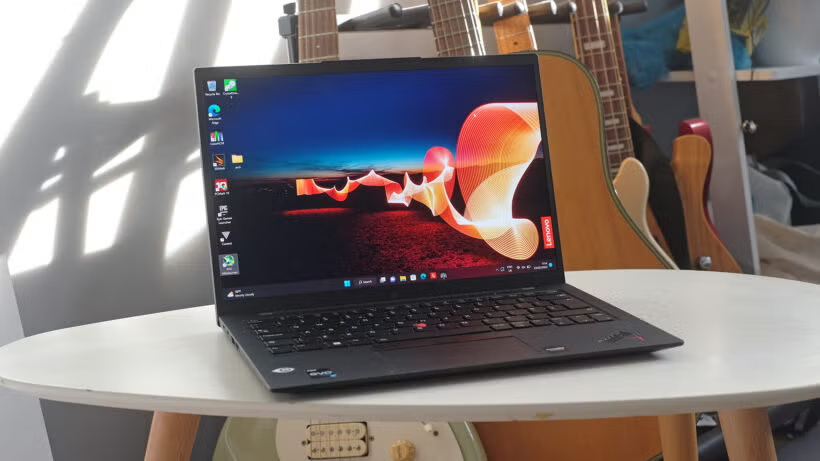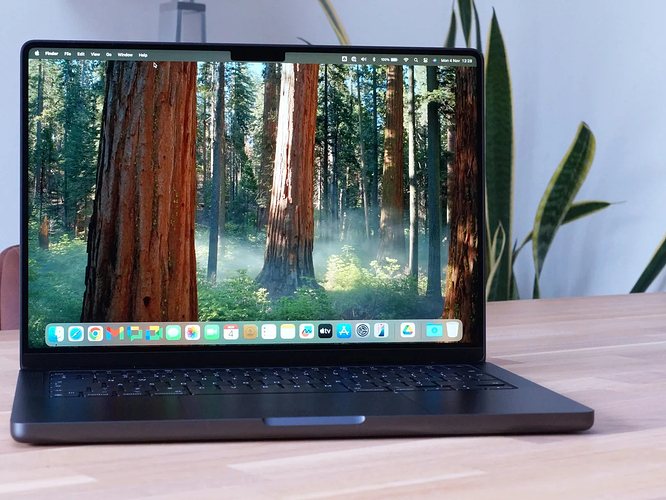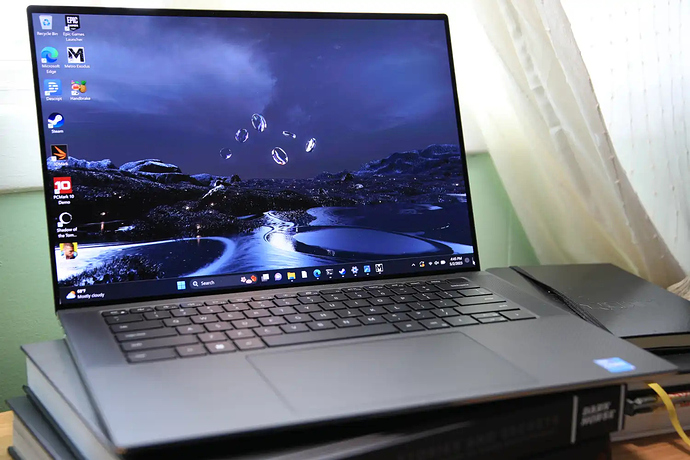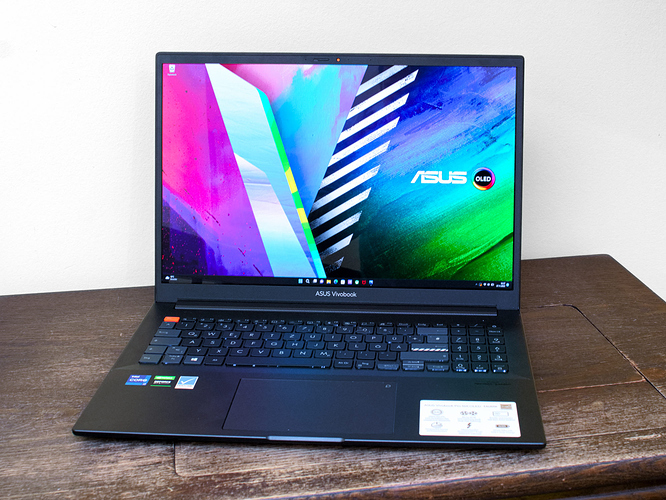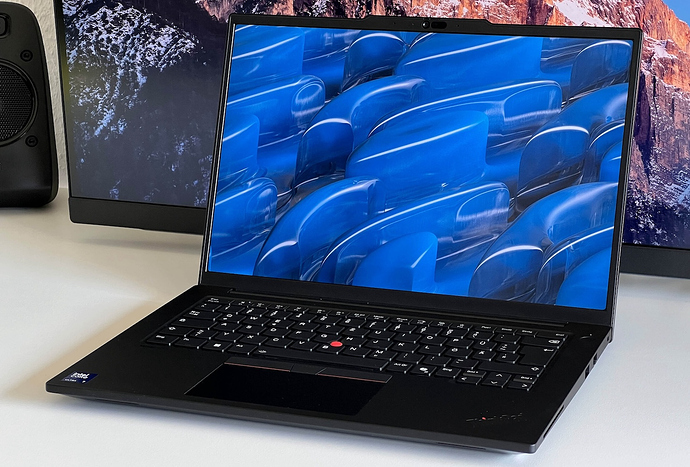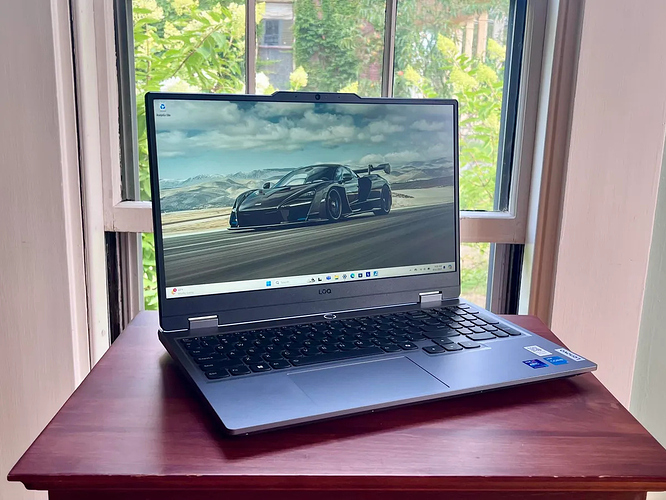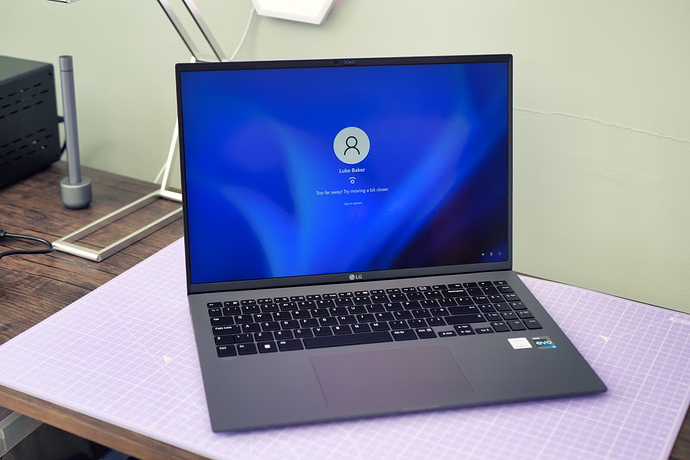Writing code is one thing.
Compiling it, testing it, running local environments, and juggling multiple tools all at once — that is what separates casual laptops from real ones. Whether you’re building web apps, working in data science, or grinding through machine learning models, your laptop needs to be fast, reliable, and quiet under pressure.
This list is not just about specs. These are laptops that hold up when you’re knee-deep in code, working across VS Code, Git, browsers, Docker, terminals, and more. If you care about keyboard feel, compile times, thermal control, and battery life, you are in the right place.
1. Lenovo ThinkPad X1 Carbon Gen 11 – Best For Long-Term Use
The ThinkPad X1 Carbon Gen 11 is a programming laptop that feels built for the grind. You get Lenovo’s best keyboard — comfortable, responsive, and made for long typing sessions without fatigue. The build is strong and lightweight, so whether you’re working at a desk or moving between locations, it always feels like the right tool for the job.
Inside, it runs on Intel’s latest Core i7 or i5 chips with fast LPDDR5 RAM and top-tier SSDs. That means compile times stay fast, IDEs stay responsive, and multitasking across terminal, browser, and Git is smooth. It handles dev workflows from backend to front-end without hiccups, even under heavy load. Thermals are well managed too, so it stays cool and quiet no matter how long you’re working.
Battery life stretches well into double digits and charges fast when you need it. If you want a dependable daily driver that performs in every environment and never gets in your way, the X1 Carbon Gen 11 is one of the most well-rounded picks for any serious programmer.
2. MacBook Pro M4 14.2" – Best For macOS Developers
This one is made for developers who live inside the Apple ecosystem. The M4 MacBook Pro gives you insane speed, long battery life, and silent operation, even when you’re running Xcode, Docker, Chrome, and terminals all at once. Everything from the way it wakes up instantly to how it manages memory feels like it was designed to stay out of your way.
The Liquid Retina XDR display is sharp and color-accurate, which helps when reviewing UI layouts or bouncing between dark mode editors and bright diagrams. The keyboard is smooth and quiet, and the large glass trackpad is still one of the best on any laptop. The unified memory and M4 chip combo keeps everything fast, even when you’re running multiple containers or working with larger projects.
Battery life is a major strength. You can go a full day of coding and still have juice left to push one more build. If you’re writing iOS apps, doing web development, or just prefer macOS tools, this laptop is overkill in all the right ways.
3. Dell XPS 15 – Best For Full Stack Development
The XPS 15 is a powerhouse that feels just right for developers running a full stack of tools and environments. It handles everything from backend builds to front-end testing without breaking a sweat. The keyboard is large and tactile, the trackpad is spacious, and the overall design feels professional and ready for long coding sessions.
It comes with high-end Intel Core Ultra processors, dedicated NVIDIA graphics, and up to 64GB of RAM depending on configuration. That means if you’re running containers, local servers, a heavy IDE, a couple browser windows, and a design tool all at once, this thing keeps moving. It is one of the best Windows laptops for developers who need raw power and clean visuals in one machine.
The display is available in full HD or 3.5K OLED, and both are excellent for long hours of work. Battery life is decent for the size and power, hitting around 9 to 10 hours on average. It is heavier than something like the X1 Carbon, but if performance is your priority, the trade-off is more than worth it.
4. ASUS Vivobook 16 Pro – Best For Coding and Creative Work
The Vivobook 16 Pro is a solid option for programmers who also dip into design or content creation. It is powered by AMD Ryzen 9 or Intel Core H-series chips and often comes with dedicated NVIDIA RTX graphics. That combination gives it the flexibility to handle programming workflows and creative tools like Blender, Photoshop, or even video editing apps without lag.
The 16-inch display is a big plus. It gives you plenty of space to code, debug, and preview without needing to plug in a second screen. Color is accurate, brightness is strong, and the visuals stay crisp even at different angles. The keyboard is full-size with good travel and spacing, so it is easy to stay locked in for long sessions.
Battery life hovers around 8 to 10 hours depending on your workload. For the price, it offers strong value with specs that punch above its weight. If your workflow goes beyond code and into more creative territory, this one gives you room to grow without breaking your setup.
5. Lenovo ThinkPad P14s Gen 5 – Best For Linux and Open Source Devs
The P14s Gen 5 is part of Lenovo’s workstation-class lineup, and it feels like it. It is compact, portable, and built with long-term durability in mind. You get the same excellent ThinkPad keyboard with tactile feedback that is perfect for developers who type all day. It also has great Linux support out of the box, which makes it a strong choice for developers working in open source or on custom environments.
Specs include AMD Ryzen Pro or Intel Core Ultra processors, up to 64GB of RAM, and plenty of fast storage. It is ideal for setting up virtual machines, running Docker, managing remote servers, and compiling large codebases. It also includes strong port selection and build quality that holds up under heavy use.
Battery life reaches about 10 to 12 hours on real-world settings and holds steady even when running multiple terminal sessions or background processes. If you need a no-nonsense development laptop that works great with Linux or dual-booting, the P14s Gen 5 is an underrated workhorse.
6. Lenovo LOQ – Best For Performance on a Budget
The Lenovo LOQ brings high performance at a much more accessible price point. Originally designed for casual gaming, it turns out to be a great fit for programmers who want serious hardware without a steep price tag. With Intel Core i7 or Ryzen 7 chips and dedicated NVIDIA graphics, this laptop gives you smooth performance across IDEs, local testing environments, and even light 3D development.
The keyboard is built like a gaming laptop, which means more travel, responsive keys, and a layout that feels comfortable even when coding for long periods. It has good thermals and fans that keep the system cool under load without getting too loud. You can run multiple tools side by side and still keep things stable.
Battery life is better than you’d expect for the hardware, landing around 7 to 9 hours. It is not as light or thin as premium options, but for students or devs on a tighter budget, the LOQ gives you serious performance for less.
7. LG gram 16” – Best For Portability and Screen Size
The LG gram 16" hits a sweet spot between screen size and weight. It gives you a full 16-inch display for code, documentation, and browser side by side, but still weighs under three pounds. That makes it great for devs who move between home, coffee shops, or coworking spaces and do not want to lug around something heavy.
It runs Intel Core Ultra processors and supports up to 32GB RAM, which is plenty for most programming tasks. The performance holds up whether you’re working in VS Code, managing remote servers, or switching between a handful of developer tools. The keyboard is well-spaced and responsive, and the trackpad is large enough for precise navigation.
Battery life regularly hits 12 hours with mixed use, and the display is sharp without being overly reflective. If your workflow benefits from more screen real estate but you still want something light and portable, this one checks both boxes.
Final Thoughts
Programming is all about staying in flow. The right laptop helps you get there faster and stay there longer. Whether you need raw speed, a big screen, silent operation, or reliable Linux support, the laptops on this list are built to keep up with how developers actually work.
Pick based on how you code, what you build, and where you work. Because once your setup feels right, everything else just moves smoother.

